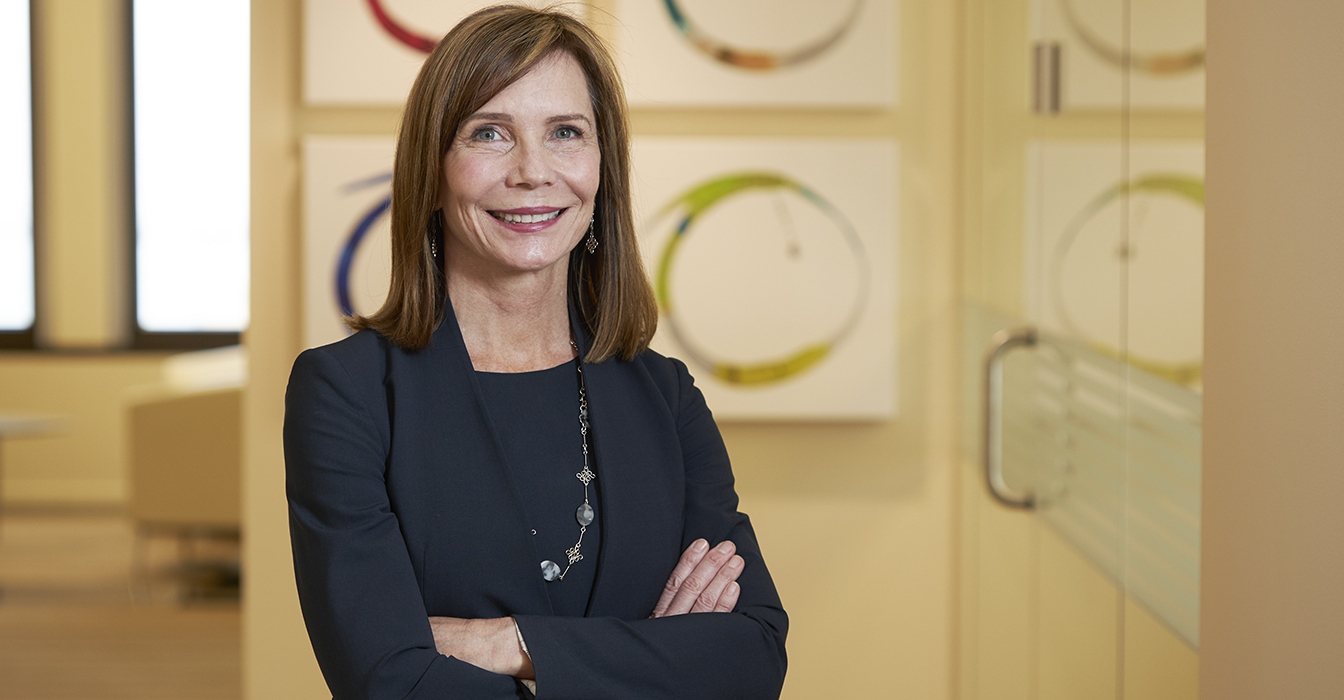Bonny E. Sweeney has built one of the nation’s top antitrust litigation practices by thriving on the challenge of going up against powerful opponents in massively complex cases. She has taken on heavyweights in the financial world, including as co-lead counsel in a class-action antitrust suit against major credit card companies and, currently, in a closely-watched case involving foreign exchange market rigging. Sweeney, a partner in Hausfeld’s San Francisco office and co-chair of the firm’s U.S. antitrust practice, is a graduate of Case Western Reserve University School of Law.
Lawdragon: Can you describe for our readers your focus as a litigator?
Bonny E. Sweeney: Most of my work is in antitrust litigation. I represent businesses and individuals injured by anticompetitive practices such as price-fixing, exclusive dealing, and monopolization. I also handle other complex litigation for clients in matters involving sports law, contract disputes, human rights violations, and fraud claims.
LD: How did you first become interested in antitrust work?
BES: Early in my career, when I was a defense lawyer, I worked on a few antitrust cases and found them fascinating. When I moved to a plaintiffs’ firm my first assignments were two blockbuster antitrust cases – one against Nasdaq market makers and the other against the NCAA. Both cases were complex, challenging, and high-stakes.
LD: What do you enjoy about this type of work?
BES: The complexity of antitrust keeps my cases interesting. As a practitioner you are constantly learning about the market dynamics of new industries, working with economists, and applying complex judge-made law.
LD: What has been a career highlight for you so far?
BES: In 2015, I joined Hausfeld, a leading antitrust firm. This has been a tremendous move for me. My colleagues include some of the best and brightest antitrust lawyers in the country. In addition, the firm is committed to social and economic justice; our lawyers represent victims of human rights abuses, environmental and other public health threats, and harassment and discrimination.
LD: Did you have a course or professor in law school that was particularly influential?
BES: My favorite law professor was Karen Nelson Moore, now a judge on the Sixth Circuit Court of Appeals. She was my civil procedure and tax law professor. Although I had zero interest in either of those topics when I started, and I have stayed far away from tax in my professional life, Judge Moore was the kind of teacher who made those subjects come alive. My strong base in civil procedure helps me every day in my complex litigation practice. But more importantly, Judge Moore was a role model. She was brainy, confident, composed, and always compassionate.
LD: Do you have any advice for current law school students?
BES: Study widely. You never know what areas of the law will interest you. Take advantage of the opportunity to try new areas.
LD: Were there any other mentors who really helped shape the course of your professional life?
BES: One of my first supervisors was Sandra Lynch, who at the time headed up the litigation department at my former law firm and who is now a judge on the First Circuit Court of Appeals. Judge Lynch was a fierce and brilliant advocate who demanded perfection. I still review my writing with her voice in my head. Judge Lynch’s focus on excellence made me a better lawyer.
LD: Is there a matter or client in your career that stands out as a “favorite” for certain reasons?
BES: My favorite case is an antitrust class action we successfully tried against the NCAA, Law/Hall/Schreiber v. NCAA, in U.S. District Court for the District of Kansas. We represented a class of college coaches who challenged an NCAA rule that limited the salaries of those coaches to $12,000 for the academic year. The jury found for the plaintiffs after a four-week trial. That case had everything – interesting legal and factual issues, fabulous clients, a tough opponent, wonderful colleagues, and a thoughtful presiding judge.
LD: What are some of the challenges you face as Co-Chair of Hausfeld’s U.S. Antitrust Practice?
BES: As Co-Chair with Scott Martin of the U.S. firm’s Antitrust Practice, I help manage a claimant-side practice in an area in which the law has become increasingly friendly to defendants. Standards for surviving a motion to dismiss are higher, classes are harder to certify, and judges and juries are sometimes skeptical about the very real harm caused by anticompetitive conduct. At the same time, the U.S. has seen an increase in economic concentration, a decrease in competition, and a decline in public enforcement of the antitrust laws – making private enforcement of the antitrust laws more important than ever. Our practice is busy, challenging, and always interesting.
LD: What do you do to unwind outside the office?
BES: I love being active and outdoors with my family and friends. Whenever I can, I head to the mountains to hike and ski. At sea level, I do CrossFit and I’m learning to golf.
LD: If you weren’t a lawyer, what would you be doing now?
BES: I would probably be teaching and writing about Chinese politics.


